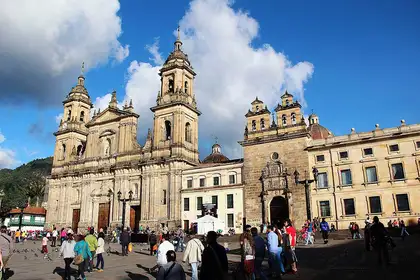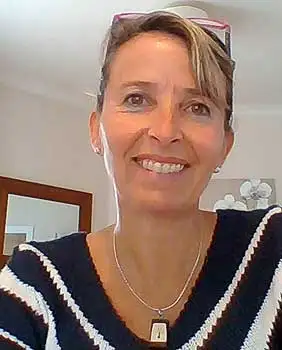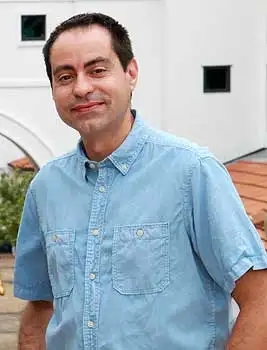
Catedral Primada in Bogota, Colombia where New Zealand Spanish language teachers will go (image/Wikimedia Commons).
Secondary school Spanish language teachers from across New Zealand are about to add a Colombian accent to their teaching techniques.
The group of eight teachers will fly to Colombia next week as part of a programme encouraging cultural connections between the two countries and will be accompanied by Spanish language lecturer Dr José Díaz Rodríguez, who is based at Massey University’s Auckland campus.
The month-long trip is funded by a Prime Minister’s Scholarship to Latin America awarded to Massey’s Spanish Language programme.
The Teaching Teachers: NZ Spanish teachers in Colombia programme, offers New Zealand Spanish teachers the opportunity to advance their prowess by immersing themselves in a Spanish-speaking context and join in classes and workshops with Colombian specialists in second language teaching.
The teachers – from schools in Waiuku, Napier, Hawke’s Bay, Havelock North, Lower Hutt, Christchurch and Dunedin – will be based until early May at the Universidad Nacional in the Colombian capital Bogota, which offers advanced Spanish language classes in the morning and cultural activities in the afternoons.
Senior lecturer in Spanish language at Massey’s School of Humanities, Dr Celina Bortolotto, says both Massey University and Universidad Nacional recognise the potential for training collaborations, exchange of expertise, cultural ties and strategic partnerships that will create economic and trade opportunities for both countries. She and Dr Rodríguez co-wrote the bid for the scholarship, which covers the cost of airfares, accommodation, travel insurance and a three-day trip to the Universidad Nacional campus in Leticia, on the Amazon River.
“Participant teachers will also be able to showcase their work and education among their Colombian peers and in the process highlight the potential for study in New Zealand and highlight the strengths of the New Zealand education system,” she says.

Dr Celina Bortolotto.

Dr José Díaz Rodríguez.
The programme is part of a goal to help Education New Zealand market New Zealand as a global education destination – estimated to have a potential market size of $5 billion by 2025.
“As part of this immersion training, New Zealand teachers will also act as cultural ambassadors and share the variety of their practices, the diversity of their challenges and the richness of their culture in Aotearoa with Colombian teachers and students,” says Dr Bortolotto, who is from Argentina.
Each participating teacher has organised or been involved with activities promoting the teaching of Spanish in New Zealand over the past few years, many of them spearheaded by Massey’s Spanish Programme.
While in Colombia, the teachers will also be hosted on two educational field trips where they will meet different Colombian communities.
Dr Bortolotto says when they return, the teachers will be able to share their knowledge and experiences of Latin American culture, in particular Colombia, to a larger New Zealand audience. She hopes the programme will encourage further teaching and research collaborations between Massey and Universidad Nacional.